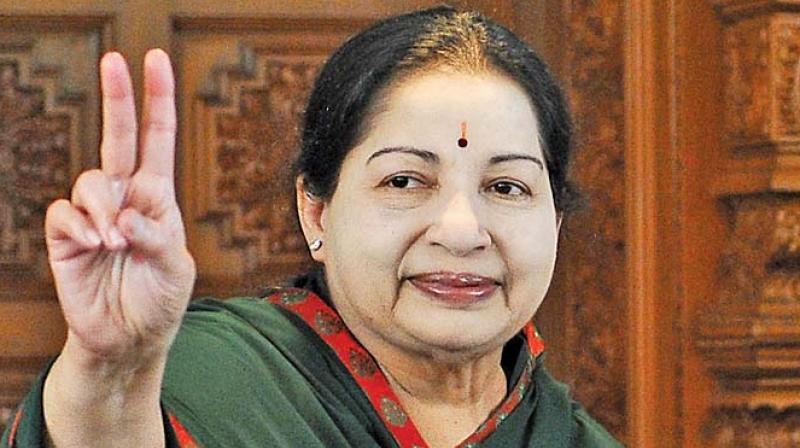Jaya ensured changes in many Central schemes

Chennai: Though it may have appeared that Jayalalithaa's AIADMK had opposed the Central schemes initially but later accepted them, the reality has been the late chief minister had opposed the schemes to ensure appropriate changes.
In the case of Centre's Ujjwal Discom Yojana (Uday), for instance, which TN had joined in January this year, Jayalalithaa had opposed some provisions such as the quarterly revision of power tariff. By joining the Central government's power utility turnaround scheme Uday, the state become the 21st state to bail out state-owned distribution firms struggling with enormous debt. The signing up for the scheme came after some of the utilities showed signs of turnaround with the help of steps meant to reduce power theft and improve efficiency.
Jayalalithaa had opposed the Uday scheme though some progress was made when Union minister Piyush Goyal met her at the Secretariat on July 15. Goyal then stressed that the state would save at least Rs 22,400 crore of discoms' debt in the next three years.
“Amma (Jayalalithaa) never opposed the Central schemes like National Food Security Act but had only sought changes,” power minister P. Thangamani told the Assembly during a debate on the budget while responding to DMK legislator T. Senguttuvan's charge that the ruling party implemented Central schemes like NFSA during Jayalalithaa's hospitalisation although she had opposed them earlier.
Three years after its enactment, the state government decided to implement the NFSA from November 1, 2016, but insisted that its existing Universal Public Distribution System would continue and rice will be supplied to all rice cardholders.
The party supremo was hospitalised on Sept. 22, 2016 and breathed her last on December 5 the same year. Interestingly, in the ninth GST council meeting in New Delhi, Tamil Nadu was seen playing a proactive role which helped break the deadlock on the contentious sharing administrative powers issue. It paved way for the GST rollout on July 1. Previously, Tamil Nadu was a staunch opponent of the GST contending that it would erode the state's autonomy by taking away the right to formulate tax policies.
With Jayalalithaa at the helm, Tamil Nadu, a manufacturing state, was apprehensive that it may face revenue losses due to transition to GST — a destination-based tax that will be levied by the consuming state rather than the producing state.

